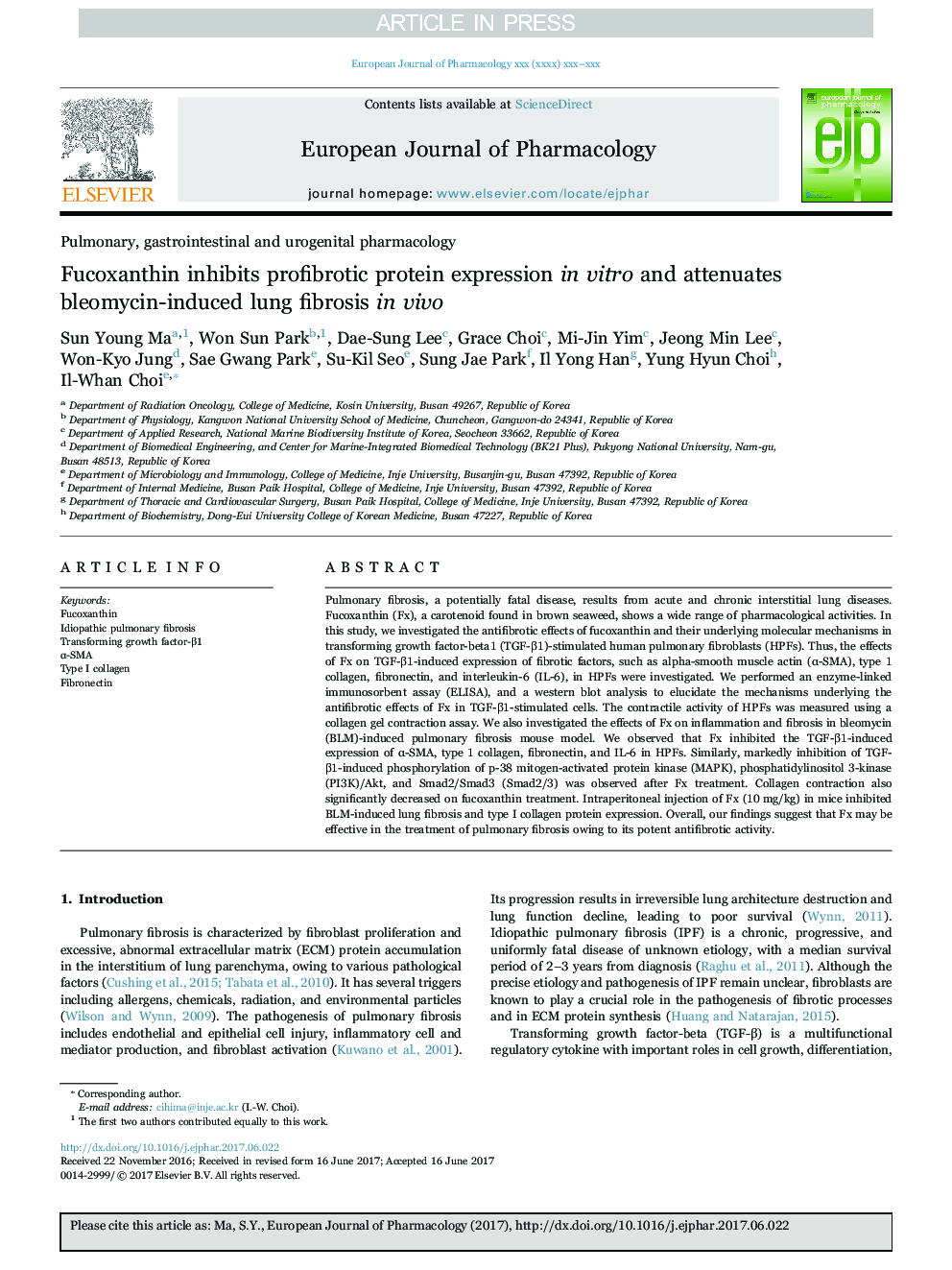| Article ID | Journal | Published Year | Pages | File Type |
|---|---|---|---|---|
| 5554460 | European Journal of Pharmacology | 2017 | 9 Pages |
Abstract
Pulmonary fibrosis, a potentially fatal disease, results from acute and chronic interstitial lung diseases. Fucoxanthin (Fx), a carotenoid found in brown seaweed, shows a wide range of pharmacological activities. In this study, we investigated the antifibrotic effects of fucoxanthin and their underlying molecular mechanisms in transforming growth factor-beta1 (TGF-β1)-stimulated human pulmonary fibroblasts (HPFs). Thus, the effects of Fx on TGF-β1-induced expression of fibrotic factors, such as alpha-smooth muscle actin (α-SMA), type 1 collagen, fibronectin, and interleukin-6 (IL-6), in HPFs were investigated. We performed an enzyme-linked immunosorbent assay (ELISA), and a western blot analysis to elucidate the mechanisms underlying the antifibrotic effects of Fx in TGF-β1-stimulated cells. The contractile activity of HPFs was measured using a collagen gel contraction assay. We also investigated the effects of Fx on inflammation and fibrosis in bleomycin (BLM)-induced pulmonary fibrosis mouse model. We observed that Fx inhibited the TGF-β1-induced expression of α-SMA, type 1 collagen, fibronectin, and IL-6 in HPFs. Similarly, markedly inhibition of TGF-β1-induced phosphorylation of p-38 mitogen-activated protein kinase (MAPK), phosphatidylinositol 3-kinase (PI3K)/Akt, and Smad2/Smad3 (Smad2/3) was observed after Fx treatment. Collagen contraction also significantly decreased on fucoxanthin treatment. Intraperitoneal injection of Fx (10 mg/kg) in mice inhibited BLM-induced lung fibrosis and type I collagen protein expression. Overall, our findings suggest that Fx may be effective in the treatment of pulmonary fibrosis owing to its potent antifibrotic activity.
Keywords
Related Topics
Life Sciences
Neuroscience
Cellular and Molecular Neuroscience
Authors
Sun Young Ma, Won Sun Park, Dae-Sung Lee, Grace Choi, Mi-Jin Yim, Jeong Min Lee, Won-Kyo Jung, Sae Gwang Park, Su-Kil Seo, Sung Jae Park, Il Yong Han, Yung Hyun Choi, Il-Whan Choi,
